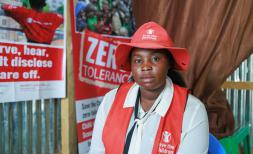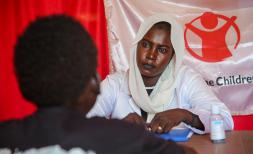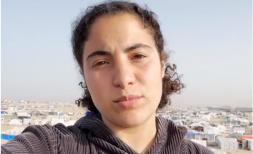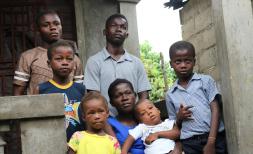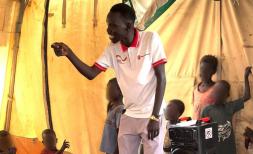It's Time to Stand Together to Fight COVID-19
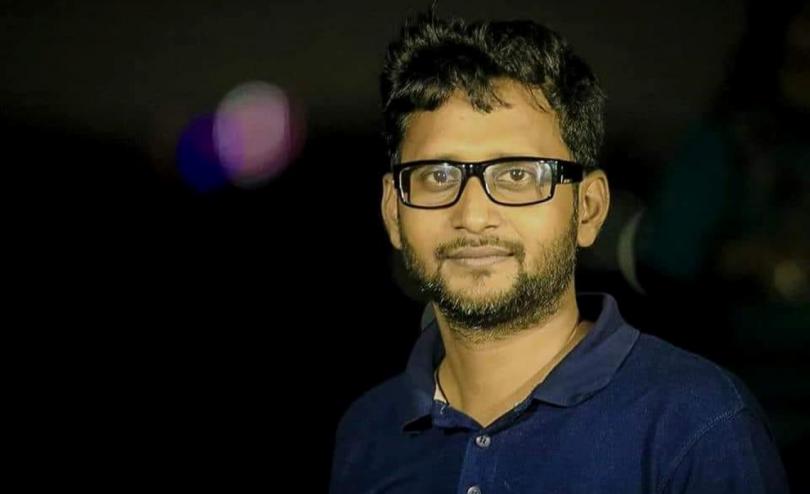
A Bangladeshi frontline health worker urges people to be kind.
I provide methadone to people who inject drugs and are at high risk of contracting HIV. I did not expect that my job would land me on the streets like many of my patients, because of the COVID-19 pandemic.
Methadone is an oral substitute to help reduce illegal drug use through needles. Users need a steady supply, as any disruption in the distribution could encourage them to start re-using injectable drugs or other alternatives, thereby greatly increasing their risk of contracting HIV. On a regular day up to 180 patients come to the drop-in centre where I work.
When the first COVID-19 patient was confirmed in Bangladesh in early March, I continued to work - it was business as usual. But as the number of cases increased, I became concerned for my safety and the safety of my colleagues because we worked in direct contact with a high-risk population.
The patients who come in to see us are mostly street and slum dwellers who have minimal access to and awareness of proper hygiene practices. Not to mention, most live in crowded settlements with hardly any prospect of social distancing.
In order for us to keep working, Save the Children gave us protective gear and hand sanitizer. The counters through which I dispense medicine were covered in glass and a queuing system for patients keeping a three-foot gap was put in place.
But then the government enforced a national lockdown and put checkpoints across the country, which made getting to work more challenging day by day, as all forms of transportation were suspended. To continue our services for vulnerable people, Save the Children provided transport to and from work. But some of my colleagues who live far away were still unable to do the commute, as it would have taken them hours just to reach the location. This increased my workload tremendously. I found I was doing the job of three people by myself.
As other similar centres closed around the city, a larger number of people started coming to the neighborhood every day. The local community where the HIV prevention drop-in centre is located expressed their worry about it. They understood the importance of supporting the rehabilitation of drug users but were equally concerned that these people could bring the virus to their area. Eventually, they organized a large protest outside the centre, screaming and shouting and telling us to suspend our services or relocate to some other place.
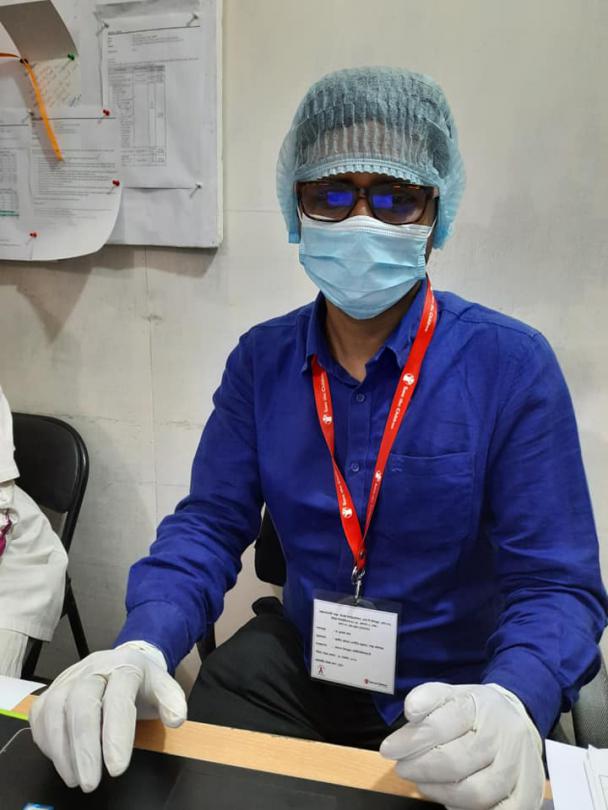
Abdus Sobhan wearing personal protective equipment (PPE) to work on the frontline.
We stopped working there but I was adamant that we should not stop our services under any circumstances. This medicine is crucial for drug users and their rehabilitation, so we reopened under a Government-run drug treatment centre in a non-residential area. We started giving take-home doses of methadone every four days under strict supervision and follow up. This reduced social interactions.
But there is clearly a lot of stigma attached to the virus. My landlord was furious at me for going to work every day, knowing that I was a health worker. He accused me of endangering the lives of others living in my building. My neighbors also misbehaved, creating chaos, and I was asked to move out immediately. I tried to explain to them the precautionary measures that we take at work, but nobody cared to even listen to me. I was really shocked at their behavior. How could they treat me so badly when the only thing I wanted to do was help others?
I live alone in Dhaka, while my family is in Jessore, about 200km away. All of a sudden I was out on the street, with nowhere to stay for the night and no means of transport to get back to my family. My supervisor helped me arrange a private car company to take me back to Jessore and I have been working from home since.
I am very sad that I am unable to do my life-saving work. My colleagues are very supportive and have taken over the running of the clinic so there is no disruption in services.
This time has been immensely stressful for us as health workers, and we must remember to be kind and supportive of one another in this crisis. This is a global problem and we are in this together. We have to act accordingly and help each other - only then can we successfully overcome COVID-19.
